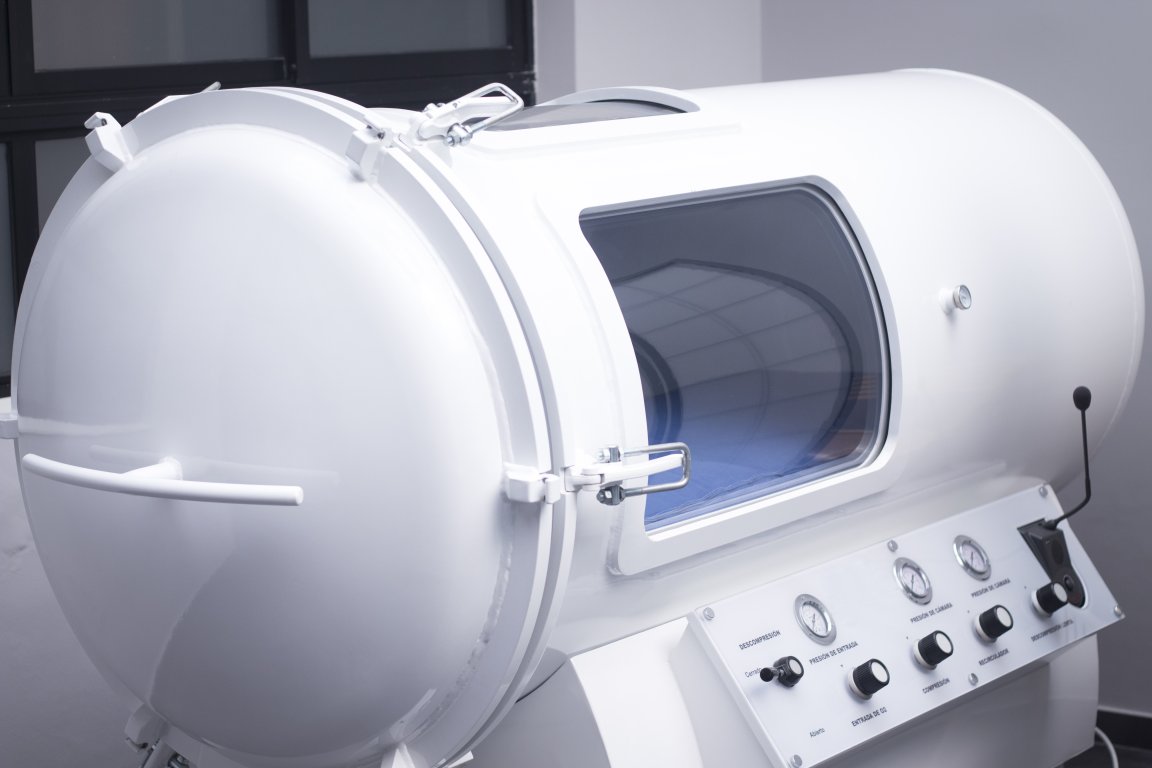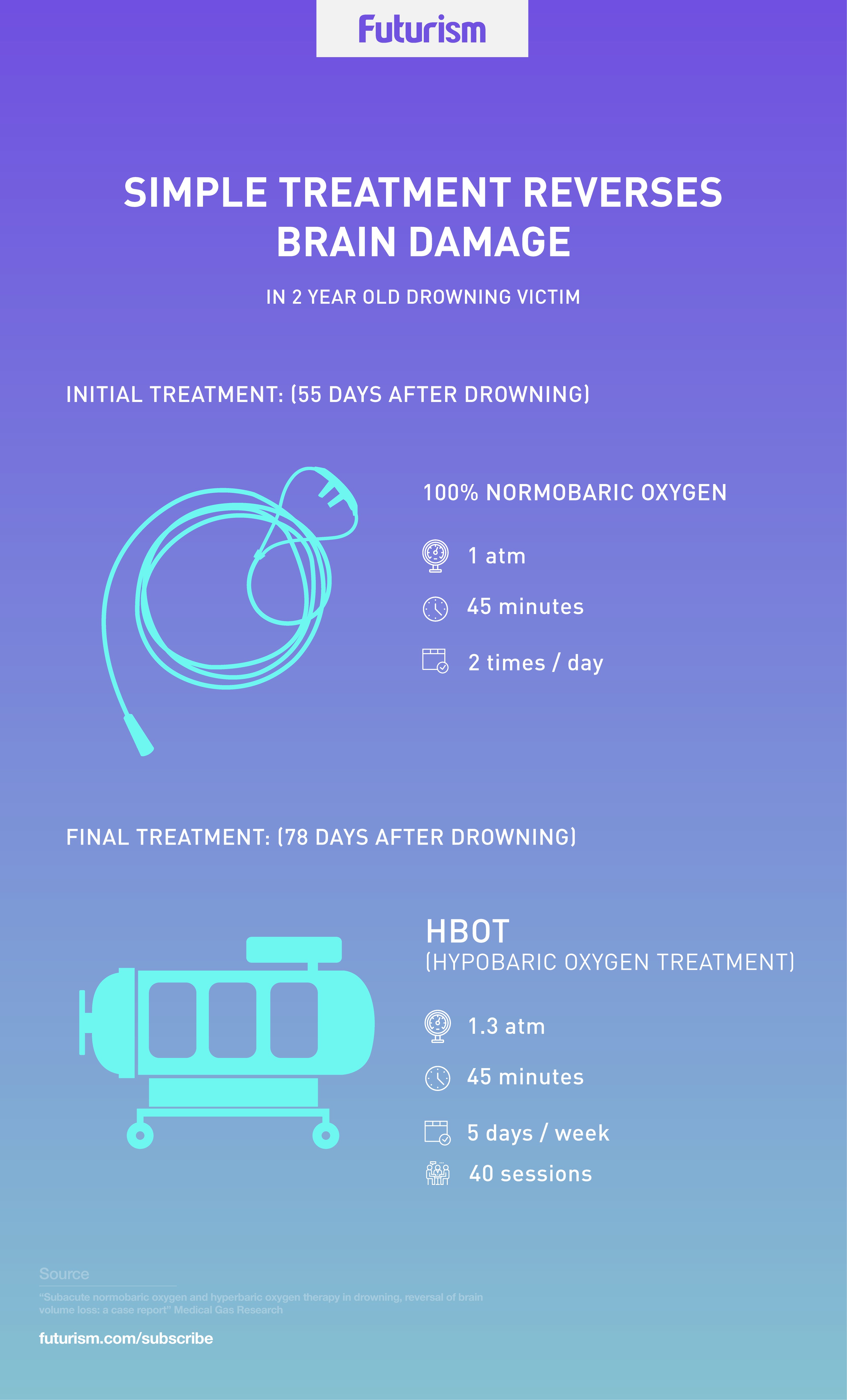
Brain Damage Reversed
Doctors recently reported the reversal of brain volume loss in an unresponsive two-year-old cold water drowning victim who had experienced cardiac arrest. After treating the child with hyperbaric oxygen therapy (HBOT) and normobaric oxygen (oxygen at sea level), she experienced marked improvement and reversal of many symptoms.

After resuscitation, an MRI showed that the child experienced cerebral atrophy with white and gray matter loss and deep gray matter injury. At the time she was discharged from the hospital, she was unable to speak, unresponsive to commands, and she exhibited constant head shaking and squirming.
To prevent permanent degeneration of tissue, Dr. Paul Harch, Director of Hyperbaric Medicine at LSU’s School of Medicine, began partial treatment. Fifty-five days post-drowning, the patient began daily short-duration treatment under Dr. Harch’s care with 100% normobaric oxygen.
With treatment, the child became more awake and alert and even stopped squirming. She experienced ongoing neurological improvement throughout her treatment period, characterized by laughing, eye tracking, increased movement of arms, grasp with the left hand, movement of hands, partial oral feeding, and short-sequenced speech at pre-drowning levels, albeit with diminished vocabulary.

78 days post-drowning, eight weeks/40 sessions of hyperbaric oxygen therapy began. At the beginning of every session, the child’s neurological improvement was visually apparent. The child’s mother said that, except for her coordination, the child was “near normal” after 10 HBOT sessions, at which point the team re-instituted physical therapy. 162 days post-drowning, following her last HBOT session, the child exhibited near-complete reversal of white matter and cortical atrophy.
Why Hyperbaric Treatment Worked
The growing brain of a young child is a hormone-rich setting, thriving in an oxygen-rich environment. Both normobaric and hyperbaric oxygen-rich environments activate genes that promote cell survival and reduce inflammation. Increased oxygen with pressure is consistent with the synergy that takes place in the presence of growth hormones and hyperbaric oxygen.
“The startling regrowth of tissue in this case occurred because we were able to intervene early in a growing child, before long-term tissue degeneration,” Harch stated in press materials. “Although it’s impossible to conclude from this single case if the sequential application of normobaric oxygen then HBOT would be more effective than HBOT alone, in the absence of HBOT therapy, short duration, repetitive normobaric oxygen therapy may be an option until HBOT is available. Such low-risk medical treatment may have a profound effect on recovery of function in similar patients who are neurologically devastated by drowning.”